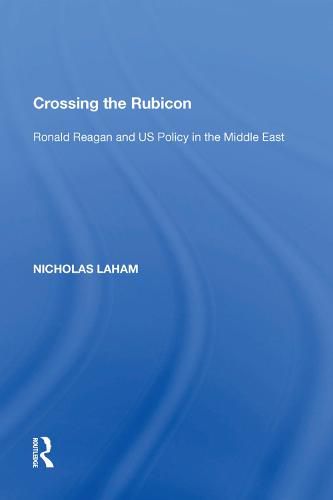Readings Newsletter
Become a Readings Member to make your shopping experience even easier.
Sign in or sign up for free!
You’re not far away from qualifying for FREE standard shipping within Australia
You’ve qualified for FREE standard shipping within Australia
The cart is loading…






This insightful work explores one of the under-examined eras of US foreign policy toward the Palestinian question: the Reagan years. The Reagan tenure is often perceived as one of disengagement from the region, especially in the aftermath of the bombing in Lebanon. Nicholas Laham contends that this is not so and that the Reagan administration set the tone for US policy for the next two decades. Specifically the work analyzes the nexus between domestic actors and US foreign policy toward the Arab-Israeli conflict. Employing significant archival materials, the book probes in detail the machinations which produced new policies and new policy priorities during this era. This study is provocative but the arguments are well-supported and solid, thus offering a major contribution to the literature. The work will prove a valuable reference tool on the Reagan presidency, the Palestinian conflict, the Middle East and international relations more generally in light of the 2001 terrorist attacks, the war with Iraq and the continuing ramifications of the Arab-Israeli conflict.
$9.00 standard shipping within Australia
FREE standard shipping within Australia for orders over $100.00
Express & International shipping calculated at checkout
This insightful work explores one of the under-examined eras of US foreign policy toward the Palestinian question: the Reagan years. The Reagan tenure is often perceived as one of disengagement from the region, especially in the aftermath of the bombing in Lebanon. Nicholas Laham contends that this is not so and that the Reagan administration set the tone for US policy for the next two decades. Specifically the work analyzes the nexus between domestic actors and US foreign policy toward the Arab-Israeli conflict. Employing significant archival materials, the book probes in detail the machinations which produced new policies and new policy priorities during this era. This study is provocative but the arguments are well-supported and solid, thus offering a major contribution to the literature. The work will prove a valuable reference tool on the Reagan presidency, the Palestinian conflict, the Middle East and international relations more generally in light of the 2001 terrorist attacks, the war with Iraq and the continuing ramifications of the Arab-Israeli conflict.